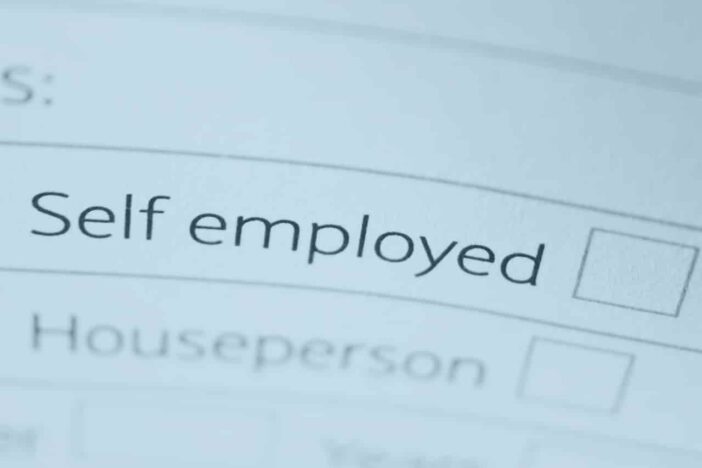Did you know that roughly fifteen million people in the United States are self-employed? There are a lot of benefits to being self-employed. Greater flexibility, better hours, and personal satisfaction are just some of them.
But, one downside to self-employment is the insurance. In the past, your employer likely provided you with insurance. Well, now you’re your employer. So, it’s up to sign up for all the self-employed insurance plans you’ll need.
And, we’re not just talking about health insurance here (though that is important). So, what are the other types of self-employed insurance plans you should look into for 2022?
In this article, we’ll explore this question by looking into a variety of different plans. That way, you can pick and choose what you need for coverage.
Self-Employed Health Insurance Plan
The first, and most important, type of insurance is self employed health insurance. This isn’t optional. Starting this year you will be fined by the government if you’re self-employed and don’t have health insurance.
The problem is that you won’t be sharing these health insurance costs with an employer anymore. You’ll need to pay for it all yourself. However, the good news is that there are a variety of healthcare plans out there.
If you want the best coverage, then you should go with private. It’s more expensive, but it will get you the protection your family needs. If you can’t afford private insurance, then go with public.
They have a variety of plans to fit any price range. If your income is low enough, you might not end up paying anything for health insurance. What’s more, you can take tax deductions on any healthcare premiums that you paid.
This will save you a lot of money at the end of the year. If you want to save money, then you should go with a high-deductible health plan.
With this type of plan, you will pay more before your insurance kicks in to cover you. But, in exchange, you have lower monthly premiums.
Self-Employed Life Insurance Plan
If you have a spouse or children, then you want to make sure that they’re covered if something happens to you. There are two main types of insurance: term life insurance and whole life insurance.
We highly recommend term insurance for self-employed individuals. With this type of insurance, you only pay for a specific period.
If you die in that period, then your family gets paid. It’s both less expensive and a better value than whole life insurance.
Self-Employed Business Insurance Plan
Business insurance differs from health and life insurance in that it’s an umbrella term that encompasses are a variety of different insurance plans. There are always risks associated with your business.
This is true even if you are self-employed. As such, business insurance helps minimize these risks. In this section we’ll go over some of the plans you should consider.
Not everyone will need some of these insurance plans. But, it’s still important to consider them.
General Liability Insurance
General liability protects you in event that someone sues you for damages on the job. For example, maybe you’re an independent contractor and someone trips on your equipment.
Or, maybe you’re cleaning a house, and your break a piece of art. If they sue you, then this type of insurance will protect you from losing money. Many types of general liability insurance will also protect you from slander.
Professional Liability Insurance
Professional liability insurance is similar to general liability. The main difference is that general liability usually deals strictly with physical injuries and damages.
Professional liability protects you from mistakes you may make during work. For example, if your products, services, or advice cause someone harm, then they could sue you.
Professional liability protects you from financial loss related to these mistakes.
Workers’ Compensation
If you have any employees working at your self-employed business, you are required to have workers’ compensation. This is mandated by the law. However, even if you work alone it’s still worth looking into.
Workers’ comp covers things like lost wages, medical expenses, and rehab expenses if one of your workers is injured. The type of business insurance, and the cost, will depend on your job.
High-risk jobs, like self-employed construction workers, will likely pay more for it. So, where’s the best place to purchase workers’ compensation insurance?
If you need a suggestion, you can’t go wrong with this self-employed workman’s comp insurance.
Self-Employed Long-Term Disability Insurance
The final type of self-employed insurance you should look into is long-term disability insurance. Many people tend to overlook this type of insurance, which can come back around to bite them.
Long-term disability insurance provides you with income if an accident or condition renders you unable to work. There are two types of disability insurance.
Short-term, which covers three to six months, and long-term, which covers you for years. We recommend skipping short-term and going right to long-term.
Most types of long-term coverage will provide you with 60% to 65% of your income for the duration of the policy. However, keep in mind that these types of policies can get more expensive if you work in a dangerous profession.
Enjoy Learning About Self-Employed Insurance Plans? Keep Reading
We hope this article helped you learn more about self-employed insurance plans. It’s important to note that not all the insurance plans on this list are necessary for everyone.
But, depending on your line of work, you could lose serious money if you ignore it. So, find out where the potential gaps are in your business and select some plans that adequately fill them. Did you love this article? If the answer is yes, then odds are that you want more like it. Luckily, we’re always adding new content to our site. So, continue diving in to learn everything you can about a diverse range of subjects.





